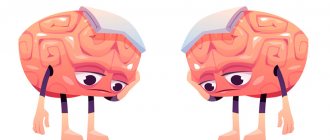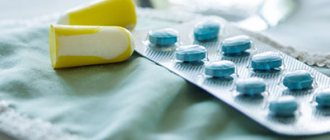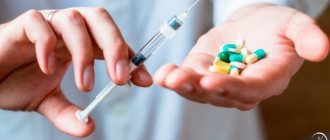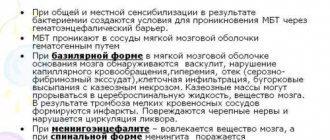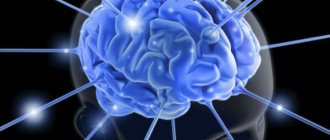Heroin is a heavy semi-synthetic drug based on opium. It is highly addictive even after 2-3 times of use. If a drug addict suddenly stops taking a psychostimulant of this type, he develops withdrawal symptoms, accompanied by severe physical and mental pain, hallucinations, and a state of panic.
The NarMed drug treatment clinic offers inpatient and at-home treatment. Modern medical technologies make it possible to quickly relieve withdrawal symptoms and alleviate the patient’s condition. To use the help of professional narcologists, call and tell us about your problem.
You can get tested at the NarMed drug treatment clinic . Pre-registration and consultation by phone +7 (495) 648-66-16
Prices for tests at the NarMed drug treatment center
Calling a narcologist to your home (patient history, prescribing a course of treatment)
from 3000 rubles
Detoxification of the body, standard ward (price excluding additional procedures, price includes: accommodation, meals, supervision by a narcologist, droppers as prescribed)
from 2900₽/day
Detoxification of the body, VIP ward (price excluding additional procedures, price includes: accommodation in a single room, meals, supervision of a narcologist, droppers as prescribed)
from 7900₽/day
How does heroin work?
Heroin belongs to the category of semi-synthetic fast-acting drugs that affect not only the physical, but also the psycho-emotional state. To achieve a narcotic effect, heroin is used for smoking, in inhalation form (by inhalation), and also for intravenous administration. The injection method of administering the drug is the most dangerous, since the narcotic effect is observed after 20-30 seconds, and addiction develops in a short time.
Heroin, like other drugs, affects serotonin-sensitive receptors, which causes a feeling of happiness and euphoria. After the next dose is administered, a feeling of permissiveness and openness appears, and such a quality as sociability is activated. After a while, the addicted person stops feeling euphoria and loses interest in what is happening. The danger of any addiction, and in particular heroin addiction, is that tolerance to the drug quickly disappears, but it is replaced by addiction, the need for regular increases in the dosage of the drug.
In addition to the drug itself, the mixture called heroin contains additional impurities that negatively affect the human body.
History of creation
Heroin was first produced during experiments by Alder Wright back in 1874. The substance entered the pharmaceutical market after 1898 in the form of a medicine for the treatment of colds (Bayer AG). In Germany it was sold by prescription in pharmacies until 1971.
The first reports on the unsafety of uncontrolled use of opiates came from the United States. American doctors noted many side effects, most alarming was the rapid development of addiction. The wave of deaths led to a complete ban on heroin in the United States in 1924.
Now the pharmaceutical circulation of opiates is under strict control. At the same time, the scale of illegal drug production remains high.
During the reporting period 2015-2016, law enforcement officers seized a record amount of heroin in the world - more than 91 tons.
Consequences of heroin use
In addition to information on how to overcome withdrawal from heroin addiction, it is important to familiarize yourself with the consequences of addiction. Drug addiction does not go away without leaving a trace, both on a psychological and physical level.
The main consequences of heroin addiction include:
- A sharp increase in the risk of infection with viral hepatitis and HIV infection.
- Decreased immunity and high susceptibility to any infectious diseases.
- Severe damage to the cells of the liver, brain and cardiovascular system.
- Menstrual dysfunction in women and suppression of erectile function in men.
- Digestive disorders. Most often, heroin addicts experience chronic constipation.
General information
Heroin was used as a drug for a long period of time until doctors noticed a negative effect - persistent psychophysical addiction. The toxic substance is included in the list of the most dangerous drugs, since 2-3 doses are enough to develop a persistent and painful addiction.
Chronic abuse leads to severe somatic pathologies and complete degradation. According to statistics from the World Health Organization, opium addiction has an annual increase and an extremely high mortality rate.
How does withdrawal from heroin occur?
Until an addicted person misses the next dose, he does not know what kind of withdrawal from heroin awaits him, and how bad it can be. The so-called withdrawal, caused by a sharp refusal to administer the next dose of a narcotic drug, occurs in several stages. The predicted outcome of withdrawal treatment depends on factors such as the timeliness of seeking professional help, the duration of drug use, and the severity of addiction. Any person who becomes dependent on heroin goes through a withdrawal phase.
Stage 1
This phase of withdrawal from addiction begins already on the first day of absence of the next dose, when the effect of the drug has ceased. An addicted person has an urgent need for another dose. The main symptoms of the first stage of withdrawal include psychological discomfort, which is accompanied by apathy and a sharp deterioration in mood. At the first stage, anxiety is felt and sweating is activated. Sleep disorders are also observed, the person feels nervous and cannot sleep for a long time.
Stage 2
On the second day after stopping the drug, characteristic physical signs of withdrawal appear. In the initial stage, these symptoms resemble those of a cold. Characteristic signs include runny nose, chills, sneezing, watery eyes, and increased sweating. The alternation of chills and sensations of heat is also characteristic. A person feels tension in the muscles of the whole body, appetite disappears, the reaction of the pupils to light partially disappears, and they dilate.
Stage 3
On the third day, severe nausea appears, which can be supplemented by diarrhea and vomiting. The general condition of a person resembles food poisoning. The symptoms are complemented by physical impotence. There is also an increase in heart rate and an increase in blood pressure. Convulsive seizures may occur periodically.
Stage 4
This stage of heroin withdrawal is accompanied by the appearance of physical pain. This condition is associated with muscle, bone and joint pain. Another characteristic sign of stage 4 withdrawal is itching in the area where drugs were injected. When searching for a position that would relieve pain, a person does not find it. At this stage, self-control is lost and the instinct of self-preservation is suppressed. There is weight loss, the skin becomes pale or gray. The patient feels fear of imminent death. For as many days as heroin withdrawal continues, the person will be at risk of death.
Fig.: 4 stages of heroin withdrawal
Why is quitting drugs so difficult?
Drugs were first banned more than a hundred years ago. Over the last hundred years of the war on drugs, we have been constantly fed a variety of information about addiction and its causes. These stories are so imprinted in our memory that it has become the norm to accept this information as it is and not question the reasons for it. In other words, this information to which we are accustomed is imprinted in our minds as extremely clear and indisputable.
But the American Chemical Society intervened in this profound topic, changing the rules of the game. According to the view put forward by the organization, it was stated that drugs, alcohol or other bad habits are not a “personal mistake”, they are in fact a natural result of brain chemistry.
According to the results of numerous experiments on this subject, the real cause of addiction is related to the need for dopamine. Dopamine is a naturally occurring chemical responsible for determining “happiness levels” in humans.
Drugs are processed in a part of the brain called the ventral tegmental area, commonly known as the reward center. This is where the brain processes anything that makes you feel good and the chemical dopamine is released.
For example, a cocaine addict's addiction to the substance is due to his inability to evaluate anything in his brain in the same way. Therefore, it cannot be said that the opposite of addiction is sobriety. We can only explain this through the concept of connection and communication with people.
It is not the addictive substances themselves that make people feel good. In fact, both the brain and the rest of the body cause this desired sensation to occur through signals that signal attention to the action. These actions can vary greatly from each other, from receiving an item to hugging a loved one. That is, such actions are associated with feelings that make people feel good. It is claimed that some medications can increase dopamine levels up to ten times higher than normal.
Thus, the brain adapts to dopamine overload by reducing the number of chemical receptors. This results in the addict requiring more of the substance each time, as well as a constant need for more stimulants in order to reach a level similar to the one they first consumed.
On the other hand, the British author Johann Hari collected a number of discoveries about people living in a “happy environment”. According to this review, when these people's brains produce enough dopamine on a daily basis, their likelihood of becoming addicted to drugs is not as high as thought.
The opposite of addiction is connection with people, not sobering up.
In an excerpt from a book by Bruce Alexander, a professor of psychology at the University of Vancouver, Hari emphasizes that addiction is a cell-like adaptation to the environment.
Alexander notices a strange situation in one of his experiments. Mice that consumed water containing cocaine until death were always alone in their cages and showed no activity other than consuming the drug. So how would they behave if they were encouraged to do the opposite?
The scientist built a rat park on this question that came to his mind. This fun playground has mouse balls, delicious food, tunnels for them to run through and lots of friends. So this park has everything a mouse could need.
All the mice in the rat park drink water from two containers located here. However, the result is amazing. Mice living a good life did not like water containing drugs. Among the remarkable details is that none of these mice died. While lonely and unhappy mice became addicted during the experiment, none of the mice living in happy environments did.
At first it was thought that this was due to the unusual nature of the mice, but this idea was abandoned when another experiment was carried out on humans at the same time. The name of this experiment is the Vietnam War. Time magazine wrote that heroin use was "as common as chewing gum" among American soldiers serving in the war. There is also clear evidence to support this assessment: according to a study conducted by the General Archives of Psychiatry, approximately 20% of American soldiers became victims of heroin addiction during this war.
However, according to the same study, 95% of drug addicts subsequently stopped using drugs. A very small number of them have undergone the rehabilitation process. These soldiers returned to the world from a terrible cage to a beautiful place, and as a result they wanted to quit drugs.
Professor Alexander said the discovery poses a serious challenge to both the classical approach, which views addiction as a moral collapse resulting from hedonistic excesses, and the liberal approach, which argues that the problem of addiction, which is a disease, is caused by: a chemical takeover of the brain. Actually, Alexander views addiction as a kind of adaptation. In other words, you are not the main determining factor in this process.
How long does heroin withdrawal last?
Withdrawal from heroin lasts individually for each person. The increase in clinical symptoms continues for 3-4 days. Residual signs of the so-called withdrawal syndrome (without special medical care) may disappear only after 10-14 days. How long heroin withdrawal lasts depends on the duration of drug use, as well as the person’s general condition. Heroin addiction results in more severe withdrawal symptoms than other drug addictions.
There is also a list of residual symptoms of the so-called withdrawal syndrome in heroin addiction. Such signs include mental disorders, metabolic disorders, and sleep disorders. Such disorders can last for several months.
Literature:
- Drug and alcohol addiction: a practical guide to the rehabilitation of children and adolescents / S. B. Vaisov. - St. Petersburg: Science and Technology, 2008. - 268 p.
- Adolescent narcology: a guide for doctors / I. N. Pyatnitskaya, N. G, Naydenova. — Moscow: Med. information agency, 2008. – 251 p.
- Clinical and socio-psychological foundations for the prevention of addiction to psychoactive substances in minors / A. V. Khudyakov; State higher educational institution prof. education "Ivanovo State honey. acad. Federal Agency for Health and Social Development." — [Ed. 2nd, additional]. - Ivanovo, 2007. - 252 p.
Need some advice?
OR CALL A DOCTOR
CALL!
+7
Getting out of heroin withdrawal at home
Regardless of how long a person has been dependent on a drug, he cannot avoid withdrawal symptoms in the absence of the next dose. It is important for relatives and loved ones of a drug addict to remember that withdrawal from heroin addiction is a serious condition that poses a direct threat not only to health, but also to human life.
Going through withdrawal from heroin at home is impractical and even dangerous. Effective treatment for drug addiction can begin in a drug treatment clinic. Relatives of an addict often make mistakes: they resort to using traditional medicine methods or, in a fit of desire to help the addict, they can offer another dose of the drug.
Relatives and loved ones of a drug addict in a state of heroin withdrawal should take into account the following nuances:
- In a state of withdrawal, a person is dangerous to the people around him, since he loses self-criticism and the instinct of self-preservation. When withdrawal from heroin develops, no matter how much they try to pacify the addict on their own at home, it turns out to be futile.
- If you show leniency towards a drug addict and provide him with a dose of the drug, then during the next withdrawal he will do everything possible to get the dose again.
- Medicines from the so-called home medicine cabinet are ineffective for relieving heroin withdrawal.
Alcohol also does not help relieve heroin withdrawal symptoms or alleviate a person’s general condition during withdrawal. A drug addict needs to undergo comprehensive treatment in a clinic and rehabilitation center. Drug addiction is a disease that requires treatment.
UBOR procedure
In severe situations, ultra-rapid opioid detoxification (UROD) can be used in a hospital setting. The procedure involves the use of general anesthesia. The drug addict is put into a state of medicated sleep, which allows him to not feel severe pain.
Advantages of the UBOD procedure:
- the possibility of rapid detoxification, active removal of metabolites in an accelerated manner;
- complete absence of sensitivity and pain;
- the person is in a state of deep sleep, the body recovers faster;
- The cleansing process takes about a day instead of 2 weeks.
The procedure is performed only in a hospital under the supervision of an anesthesiologist. After completion, the average recovery period takes 3-4 days. During UBOD, potent drugs and hardware methods of blood purification are used.
After detoxification, drug addicts often return to deadly addictions. Drug rehabilitation helps prevent relapse. Specialized institutions offer:
- comprehensive full-cycle programs for restoring psychological health, physical and social rehabilitation;
- unique methods of treating drug addiction and alcoholism;
- experienced doctors;
- drug treatment assistance at home;
- detoxification in a hospital.
are provided anonymously. You can find out more about the cost of treatment and sign up for a free consultation with a narcologist by calling our contact numbers.
Treatment at the clinic's inpatient facility
If a person has developed withdrawal from heroin addiction, only a narcologist can answer how to get rid of this condition. Professional withdrawal from a serious condition is carried out using special medications that improve physical condition and accelerate the process of removing drug residues from the body. Tranquilizers are prescribed to relieve pain and convulsive symptoms. In order to normalize the mental state, a short course of antidepressants can be prescribed, as well as amino acids that have a beneficial effect on the activity of the central nervous system.
In addition, cardioprotectors, hepatoprotectors, hormonal agents, psychostimulants, and multivitamin complexes are prescribed as part of maintenance therapy.
An important aspect of treatment is detoxification, which includes infusion therapy, hemodialysis, enterosorbents, and gastric lavage.
Quit drugs. Analysis from Alexey Yurov
Content:
- Why is quitting drugs so difficult?
- Is it possible to quit drugs on your own?
- I want to give up drugs. Where to begin?
- Principles of a consistent desire to quit drugs
- Parents: signs of drug use
- What parents should do
- Interview with a former drug addict
- Quit drugs with the help of a rehab center
- Advantages of rehabilitation in the RC
Last revision: 04/12/2021
Socialization of a person after heroin withdrawal
After the improvement of physical condition, the stage of psychological rehabilitation and socialization begins after experiencing heroin withdrawal. This stage of recovery usually takes place in an inpatient rehabilitation center.
At a drug rehabilitation center, a person is helped by:
- understand the reasons for use,
- resolve intrapersonal problems,
- learn to cope with situations that lead to a breakdown,
- reconsider life values and goals,
- learn to build healthy relationships in the family and with others,
- if necessary, acquires professional and labor skills.
It is possible to undergo rehabilitation on an outpatient basis, but in 90% of cases this type of program does not allow the drug addict to achieve long-term remission. It’s hard for a person to be in an environment where everything reminds you of using. A drug addict regularly visits a narcologist, works with a psychologist and psychotherapist, and can attend group classes and auto-training that help reformat thinking and attitudes towards drugs.
Group classes are also organized for relatives of drug addicts. At such trainings, they teach the correct attitude to the problem of drug addiction of loved ones. Without moral support and care from relatives, it is difficult for a drug addict to overcome the craving for drugs and take the right path.
Interview. Came to quit drugs
Victor, who used drugs for twenty years, decided to quit drugs more than 6 months ago, to get rid of “drug slavery.” He told us about his life journey, experiences and desire to start a “normal” life.
Why did you decide to quit and start treatment for drug addiction?
I started taking hard drugs a long time ago, at the age of 17, but I realized that this was a road to nowhere. I was fired from my job, my girlfriend left me, and my family began to treat me like a burden. I myself could not cope with this addiction, so I took the first step and underwent detox in a Vladimir clinic, but it did not help. My sister encouraged me to consult at a medical center in Moscow and begin inpatient treatment there. I’ll say right away that I wanted to go to a private clinic, because I have prejudices against free treatment. I have all the amenities in my room, I swim in the pool every evening, eat delicious food and work with a psychologist, which speeds up the recovery process. I am very grateful to the doctors.
Why is it so hard to quit?
I took drugs for twelve years, and after these years a person becomes so accustomed to drugs that he has no idea how to live further. Heroin replaced what was missing in my life. So I kept coming back to drugs. The fact that I took them for twelve years does not mean that I was permanently intoxicated. I also abstained for a year, a year and a half and two. I also underwent community treatment which was successfully completed and my abstinence lasted for some time.
Are you tempted to go back to drugs because you have friends who are drug addicts? Yes, I only have such friends, except for two who helped me now. I've lost everything. I want to work again, have a family and children. I hope it's not too late.
So you'll probably have to make some new friends, right?
Yes, I want to live a life where I don't need heroin. I left him. I need positive impressions and positive people around me.
How did you become addicted to drugs?
I was in school, I wanted to play hockey, but I couldn’t do it. Got a sports injury. I wanted to play, this should have been my direction in life, but it disappeared, there was an emptiness. Depression set in, so I wanted to distract myself, but it’s a pity that I used destructive methods. A friend threw a party that started it all. So I tried heroin.
Today people start using drugs when they are still children?
Today, children start using drugs at the age of twelve. Another time. We hid it, no one knew about us.
So, do you want to find something that will replace drugs forever?
Yes that's right. I want to find a suitable partner. For example, I had friends who also used drugs. It was like a trigger for me. No matter how funny it sounds, heroin was my life partner, because it literally causes an explosion of endorphins in the brain. No happiness could compare with this feeling. Heroin cost me a lot of money, but he was always faithful. The drug always gave me what I wanted. It's almost like a man with a prostitute. He pays and gets what he wants.
When does a person become addicted to heroin?
It's different for everyone. I started with methamphetamine, marijuana, and it took me six years to get to heroin. As a result of taking methamphetamine, I developed intoxication psychosis. Then I took heroin, I discovered that was what I was looking for. I thought that the situation was under control, but I was cruelly deceived. After six months of taking heroin, I realized that I couldn’t do anything without the drug. It was impossible to force myself to work, even get out of bed, or have sex. Everything irritated me: conversations, sounds of water, close people, smells. When I realized that I couldn’t live without heroin at all, but I had to quit it, I tried to replace the drug with alcohol.
How do you plan to live next?
Rebuild your life. Find a job and a girl. At my age I want to do completely normal things.
Based on your experience, would you like to help drug addicts?
This was probably the only thing that could free me. I want to somehow compensate for my atrocities. I don’t know if I can teach teenagers what drugs are and why they shouldn’t be taken. Probably, my example will make you think about whether it’s worth taking the wrong path initially, so as not to give up so hard later.
Do you think you will return to your family?
I hope so. I am very worried about my mother and am very sorry about what happened. Over the years, my family has become tired of me. Getting closer to loved ones is a great desire and a great drive. It is very important for me. First you need to completely rehabilitate yourself, and then I want to convince them over time that it’s realistic to quit drugs. I think they will be happy.
Working with codependents
Codependent people can become a stronghold of salvation for the patient or, conversely, lead to a breakdown. The psychologist’s task is to re-teach such people to live together. Discuss the problems that provoke conflicts, teach them to trust each other.
In relationships with codependent people, it is important to create an atmosphere in which no one blames anyone. Because any complaints or accusations provoke conflict, potential relapse and a return to drug use.
Often people have breakdowns because they feel lonely. They lose the motivation to control themselves. Own excuses arise related to the fact that there is nothing to lose, that no one needs a person. Therefore, along with psychotherapy, the patient must undergo consultations for codependent people.
Lethal dose
Every year over 150 thousand people die from overdose in Russia. Most die before emergency help arrives. If a person is managed to be transported to a medical facility, then the chances are still negligible - secondary complications incompatible with life develop.
The lethal dose is different for each addict. Narcologists, based on their practical experience, have made the assumption that for hardened drug addicts a single dose of 150-170 mg will be fatal. For a person trying an illicit substance for the first time, the lethal dose depends on the route of administration (approximately 50 to 300 mg).
Important! At any stage of drug addiction, allergic hyperreactions of the immediate type are not excluded. Therefore, there is simply no safe dose of heroin!
Resocialization
Resocialization is the patient’s return to an active social life, restoration of family relationships, employment and search for new friends. At this stage, it is important to provide the most comfortable conditions and protect contacts with people who actively use drugs, even if it is not heroin.
The confessional (with a religious bias) approach is more successful than other methods of resocialization without a confessional component.
Taken from the dissertation: “Resocialization of drug addicts: socio-psychological aspects” by Kutyanova I.P.
Resocialization should occur step by step, from less to more. A classic example is 12 step resocialization.
Rehabilitation
The time when a person does not use drugs is called remission. There is an opinion that people who have used the drug at least once always remember its effect. This memory can force them to start using again at any moment.
The task of rehabilitation therapists is to change the patient’s social and personal identity. It is important to change beliefs about drugs, instill new values to restore its stigmatization in society.
In addition to psychological work, heroin addicts require intensive pharmacological support. If rehabilitation is not carried out comprehensively, there will be no result.
What does the rehabilitation course include:
- assistance in eliminating withdrawal symptoms (it will happen in any case);
- psychological support throughout the treatment and after it;
- working with codependent people, friends and family members;
- limiting contact with people who actively use;
- maintaining physical and mental activity;
- constant search for interests, mastering new skills or professions;
- use of replacement therapy and other pharmacological agents if necessary.
Before starting the active rehabilitation process, heroin addicts undergo special therapy to “cleanse” the body of the drug. Then, with the help of sleep or painkillers, they are helped to survive withdrawal.
There is no correlation between whether a person will use again or not if he experiences withdrawal without additional pharmacological support. Therefore, it is better to relieve the patient’s pain and allow him to endure the critical period without another breakdown.
Be careful, as the patient will try, under any pretext, to find a way to use again. He is capable of deception or even the use of brute physical force, which is why rehabilitation should take place in special medical institutions.
Get help now
Do any of your relatives or friends have an addiction? Have you tried in every possible way to help, but as a result the person still returned to his past life?
You are not the first to encounter this problem, and we can help you.
We guarantee anonymity, we will persuade you to undergo treatment, and we will help you choose a center.
Call us
8
or
Call me
